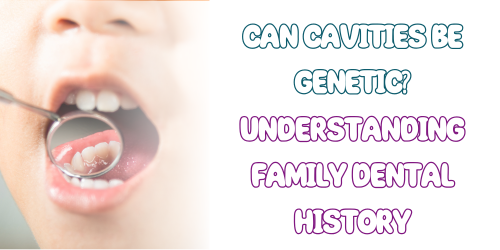When it comes to cavities, most of us blame sugary snacks and poor brushing habits. But did you know your family tree might play a role too? While lifestyle choices are major contributors to dental decay, genetics can also influence your risk of getting cavities.
How Genetics Affects Dental Health
Our genes determine many physical traits—like eye colour and height—and oral health is no exception. You might inherit:
-
Tooth enamel strength: Some people naturally have thinner or softer enamel, making teeth more vulnerable to decay.
-
Saliva composition: Saliva helps neutralise acids and wash away food particles. Genetic variations can affect how much saliva you produce and how well it protects your teeth.
-
Mouth bacteria: Certain types of oral bacteria are more prone to producing acid that erodes enamel. These bacterial profiles can be passed from parent to child.
The Role of Family Habits
Beyond genetics, families often share dietary and dental care habits. If parents neglect oral hygiene or frequently consume sugary foods, children may adopt the same behaviours, increasing cavity risk.
What You Can Do
Even if cavities run in your family, you're not doomed to get them. Preventive steps can make a big difference:
-
Brush and floss daily
-
Visit your dentist regularly
-
Use fluoride toothpaste
-
Limit sugary snacks and drinks
Bottom Line
Yes, cavities can have a genetic component—but good oral hygiene and smart lifestyle choices still matter most. Knowing your family dental history can help you stay ahead and take proactive steps toward a healthier smile.

